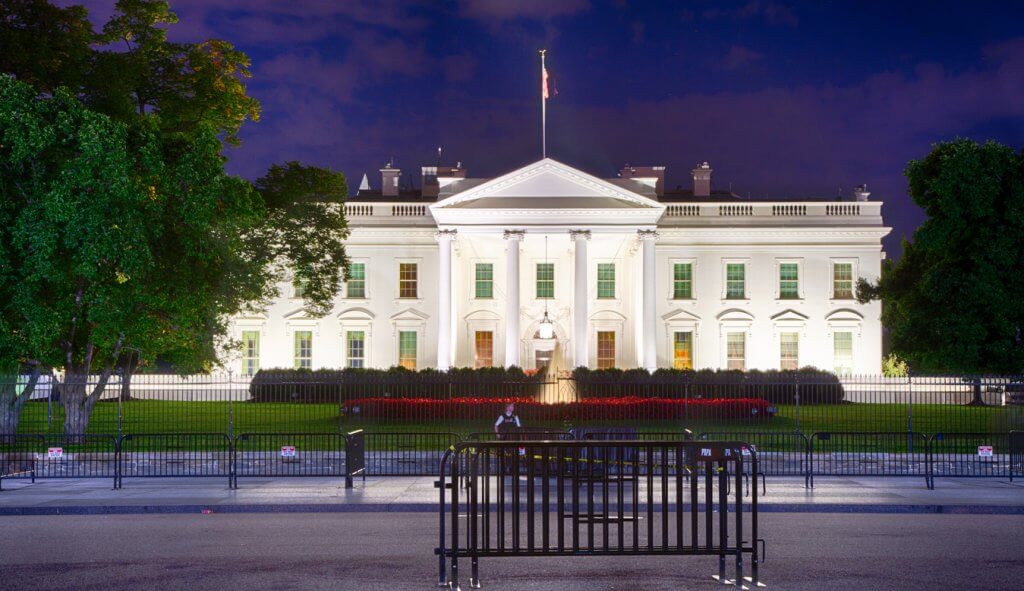Trumps victory in 2024 was driven by strategic state wins and economic issues. This article covers how he defied expectations to return to power, market reactions, and the implications for the future.
Key Takeaways
Donald Trump has made a historic political comeback by winning the 2024 presidential election, becoming the first elected president to reclaim the White House after losing a re-election bid.
Kamala Harris’s concession speech emphasized unity and encouraged her supporters to remain engaged in the political process, highlighting the importance of youth participation in shaping the nation’s future.
The financial markets reacted positively to Trump’s victory, with significant gains in major stock indices, reflecting investor optimism about his anticipated pro-business policies and economic reforms.
Trump’s Triumphant Return to the White House

Former President Donald Trump has once again surprised the nation by emerging victorious over Kamala Harris in the 2024 presidential election, having secured exactly 270 electoral votes. This triumph is particularly noteworthy, as it marks Donald Trump’s unprecedented return to power as a president elect after initially losing a bid for re-election – making him the first individual to reclaim occupancy of the White House under such circumstances. His strategic victories in pivotal states like Michigan and Wisconsin played an instrumental role, emphasizing their critical status on America’s political battleground.
During his journey towards re-election, President Donald Trump orchestrated a well-disciplined campaign that meticulously engaged with various voter groups. In stark contrast to his earlier bids for office, he focused efforts on broadening support among Americans dissatisfied with present economic conditions through deliberate outreach initiatives. He successfully captivated many voters by pushing forward narratives centered around restoring robust economic growth and ensuring national security.
Controversy remained central within Trump’s political tactics. He consistently utilized harsh personal criticisms and delivered ominous warnings throughout his crusade, revealing leanings towards authoritarian leadership styles. Despite these contentious aspects of his campaigning style or perhaps because of them, there was still evident resonance, with numerous voters wanting strong and resolute governance in times ridden with uncertainty.
Endorsements from fellow Republican politicians significantly reinforced former President Trump’s effort back into politics—their post-victory congratulations signaling unity behind him signal readiness within GOP ranks to champion his policy agenda moving forward. Such concerted backing suggests deep-rooted conviction about Donald Trump’s command among party members, along with dedication toward furthering his administration’s objectives.
Ultimately, former president trump’s remarkable resurgence conveys not only testamentary evidence of his persistent clout, but also reflects dynamic shifts among American voters’ preferences — marking yet another chapter in the United States’ complex political tapestry, where economics often intersect deeply entrenched ideologies held across its populace. As preparations begin, former President Donald Trump returns to the helm at Pennsylvania Avenue anew.
Kamala Harris Concedes: A Call for Unity
Standing on the stage at Howard University, Kamala Harris gracefully faced her audience to offer a concession speech after Donald Trump’s electoral victory. She presented herself with poise and determination, recognizing the election results, while stressing unity as a cornerstone of democracy in America. Throughout her speech, Harris emphasized respecting democratic decisions even when they lead to personal disappointment.
During her eloquent address, she exhorted those who supported her not to succumb to despair, but rather continue their engagement with American politics. By persisting in their involvement and activism beyond this singular electoral event, supporters were encouraged by Harris’s call for enduring commitment toward societal advancement—a clarion call that civic responsibility does not wane with an election’s conclusion.
Throughout this solemn occasion, Harris took the time to express sincere thanks for the unwavering effort and commitment demonstrated by all who contributed to her campaign endeavors. Channeling inspiration amid challenges through poetic language was indicative of maintaining hopefulness regardless of obstacles encountered along one’s path toward meaningful change—an affirmation that every contribution is valuable in crafting a brighter future for America.
These sentiments conveyed during what marked both an ending and new beginning following a vigorous political contestation period. Harris encapsulated aspirations towards reconciliation amidst acute social divides within modern-day American society—her plea aligned individuals around common purposes irrespective of disparate political leanings. Advancing together toward shared prosperity against divergence is central to Harris’ vision for America.
Market Reactions to Trump’s Victory

The reaction of the financial markets to Trump’s electoral triumph was immediate, as major U.S. stock indices saw substantial upward movement. The Dow Jones Industrial Average increased by 1,334 points or 3.2%. In parallel, both the S&P 500 and Nasdaq composite enjoyed gains of around 2% and 1.8%, respectively. These advances signal investor enthusiasm for pro-business initiatives anticipated from Trump’s administration.
Significant upticks were especially evident within the banking sector. For example, JPMorgan Chase. Chase shares soared by a remarkable 10%, reflecting robust confidence among market participants in this arena. Similarly striking was Tesla’s share price elevation exceeding 14%, culminating at a two-year high—signifying that investors hold bullish expectations for commerce under Trump’s direction.
Bitcoin also captured attention with its meteoric ascent to an unprecedented zenith of $75,999.04—a more than $6,600 increase—mirroring heightened investor sentiment and serving as protection against prospective economic uncertainties—the value jump showcased broader market optimism amid elevated circumstances surrounding cryptocurrency investments. Likewise, indicative of a positive response to election results is the US dollar, which celebrated its most significant growth spurt over eight years.
Yet international markets demonstrated varied responses, manifesting unease about what lies ahead regarding President-elect Trump’s economic strategies, along with potential repercussions on global trade routes and foreign investment flows. Notably marked shifts occurred within US bond yields due primarily to conjectures pointing toward amplified government borrowing paired with intensified spending expected from forthcoming policy changes, suggesting careful examination must still be applied amidst overarching marketplace positivity.
Market analysts have observed that clarity provided by finalizing election outcomes, combined with prospects for business-friendly legislation, catalyzed these noticeable rises across various sectors. Indeed, it reflects how political certainty, together with projected policies, can heavily impact fiscal proceedings significantly impacted. Thus, as unfolding developments pertaining specifically to implementing newfound directives become clear, their resultant effects on our economy will undoubtedly command attentive analysis continuing onward.
Key Foreign Leaders React to Trump’s Win

The victory of Donald Trump in the presidential election has sparked diverse responses from leaders around the world. The president of Ukraine showed enthusiasm for heightened political and economic ties with America, indicating an aspiration to deepen their bilateral connection. Leaders from Japan and South Korea also displayed hopefulness about sustaining solid alliances under President Trump’s tenure, underscoring the vital nature of these partnerships.
Meanwhile, in Mexico, its president called for composure among his people while stressing on preserving amicable relations with America. Canada’s Prime Minister Justin Trudeau spoke fondly of their enduring alliance and camaraderie, willing to collaborate over common pursuits. Presidents leaning towards conservatism in South America similarly demonstrated robust endorsement for Trump’s electoral win, signifying affinity towards his style of leadership.
On Africa’s end, Nigerian President Bola Tinubu, along with South African President Cyril Ramaphosa offered accolades to Trump. They look forward to advantageous trade interactions fostered by his presidency, just as Iraq’s Prime Minister affirmed intentions to continue fortifying U.S. bonds even amid historical strains—highlighting this partnership’s strategic significance.
In Europe, the sentiment was mixed. Britain’s Prime Minister accentuated the long-established ‘special relationship’ between the two nations, aspiring for joint efforts ahead. France’s Macron conveyed congratulations, but balanced it with advocacy for reciprocal respect and attention toward mutual concerns—a reflection on international affairs’ intricate scope.
China through its Foreign Affairs Ministry extended well wishes to Trump, but tempered optimism through aspirations for shared esteem and peaceful cohabitation. Russia held back immediate commendation partly because prevailing diplomatic tensions challenged simple congratulations—all signaling how entangled global influences are shaped by elections such as that which led Donald Trump into office.
The Role of Economic Concerns in the Election Outcome
The state of the economy emerged as a central issue in shaping the 2024 presidential election results. Before election day, voters widely expressed that current economic policies failed to meet their needs. This dissatisfaction with economic conditions became a decisive factor in voter choices at the ballot box.
Trump’s discourse on economic revival appealed strongly to those feeling neglected by prevailing financial circumstances. He effectively rallied support from this demographic, focusing on reigniting growth and boosting job opportunities. Trump’s commitment to enacting changes aimed at fostering prosperity aligned well with many voters’ desires for improved conditions, playing an instrumental role in his electoral success.
Many individuals voiced specific concerns regarding inflation and its effects on costs and employment stability—issues which made Trump’s proposed fiscal solutions, such as tax relief measures and regulatory rollbacks, seem attractive despite potential risks to increasing federal debt over time. Economic issues took center stage during this period, indicating how crucial considerations like financial security and jobs are when it comes to how citizens cast their votes.
In summary, an examination of the data through an economic analysis lens confirmed that nearly one third of all participating voters placed paramount importance on addressing economic challenges ahead of other topics—a clear testament reflecting people’s demand for policy reforms tailored toward enhancing personal finances. Such preoccupations about monetary matters proved pivotal in directing the trajectory of political victories, thereby illuminating critical insights into what constituents seek from government leadership within electoral contests.
Transition Team Sets Up in West Palm Beach
Donald Trump is gearing up for his return to the White House and has strategically established transition team headquarters in West Palm Beach, Florida. Opting for the familiar confines of his Mar-a-Lago resort reflects Trump’s affinity for environments that offer security as he prepares to embark on a second term. This development signifies an essential phase of readiness and strategy formulation ahead of stepping back into presidential duties.
The transition team is helmed by Howard Lutnick and Linda McMahon, both with considerable expertise in politics and business sectors. Their roles are expected to guide strategic planning effectively, while facilitating a seamless handover from President Joe Biden’s administration. The primary objectives at this juncture include confirming vital appointments across various positions, while drafting an agenda policy framework tailored for Trump’s upcoming tenure.
Encountering hurdles during this preparatory stage isn’t unusual. Notable among these have been requests from President Joe Biden’s staff to swiftly complete required federal arrangements, crucial for a well-orchestrated transition process. Inadequacies here have repercussions, such as hindrances affecting security clearance provisions, along with other logistical facets fundamental to enabling smooth governance uptake by Team Trump—negotiations around which are poised to gain momentum soonest in anticipation of harmonious power exchange ceremonies.
Faced with over 4,000 presidentially appointed roles that bypass Senate confirmation within the executive branch alone, there is a substantial undertaking before them—a venture instrumental in defining how they will mold administrative actions relevant towards effectuating designated policies during what promises to be an eventful leadership stint post-establishment period initiated at their current West Palm Beach operations base.
Policy Shifts Expected Under Trump’s Second Term

Heading into a second term, President Donald Trump is poised to introduce substantial shifts in key policy areas. In foreign policy, an expected tilt toward isolationism could materialize, potentially scaling back on the nation’s international engagements, while emphasizing one-on-one treaties that recast America’s global role.
On trade matters, President Trump’s administration may recalibrate its approach significantly. The goal appears to pivot towards revamping current agreements with a staunch commitment to advancing U.S. interests. Such changes could signal an exit from collective trade agreements in favor of individual deals better suiting the economic welfare of the United States, and aimed at bolstering national industry and diminishing trade imbalances.
Regarding environmental directives under Trump’s renewed leadership, there could be dismantling efforts targeting regulations meant for emission management and conservation of natural habitats. Given his critical stance on climate change validity and related multilateral pacts, it seems plausible that America might renounce involvement in international frameworks like the Paris Agreement again – decisions bound to have extensive repercussions for worldwide ecological endeavors as well as domestic environmental governance.
Economic strategy within President Trump’s anticipated agenda includes economic strategy. Tax reductions coupled with deregulation initiatives are intended as catalysts for growth by lessening fiscal responsibilities imposed on businesses and private citizens alike. Yet such moves carry potential risk by escalating federal debt levels, which evoke worry over lasting monetary health.
Trump envisages stricter immigration enforcement during his coming tenure, marked by reinforced border security measures aimed at curbing unauthorized entries decisively—a continuation indeed, but also likely intensification of tactics initiated previously designed not only toward strengthening perimeter controls but also enforcing pre-existing statutes with greater stringency.
Republican Party Gains Control of the Senate
The victory of Trump, coupled with the Republican Party reclaiming Senate control, signifies a substantial shift in power dynamics within America’s federal government. This change is poised to fortify Trump’s presidency by providing him with the congressional backing required to push his policy agenda forward effectively. With Republicans holding the majority in the Senate, executing key initiatives and gaining legislative triumphs becomes increasingly feasible.
Now that they command the Senate, Republicans are positioned to advance their cohesive legislative plan aligned with President Trump’s objectives. They aim to enact considerable economic policies, including tax overhauls and deregulatory actions, intended to propel growth and increase America’s competitive edge globally. The GOP majority also streamlines confirmation processes for Trump’s forthcoming Cabinet nominees, allowing smoother functioning of his administration.
This acquisition of control significantly alters internal relationships within the Senate, while bolstering Republican optimism regarding maintaining their narrow margin. It introduces potential flashpoints for conflicts against Democrats, who now face an uphill struggle to promote their political interests under these new circumstances. These consequences resonate deeply across American governance structure and influence how well or poorly President Trump can execute on promises made during election campaigns.
With this turnabout granting them dominion over half Congress’ chambers again – something directly tied up as well as voter participation rates combined strategic electoral efforts — it remains clear just the pivotal roles those elements continue to play in deciding outcomes seen in United States democratic institutions work practice. As such, we enter into period governmental transition legislators start session nation awaits curiously what shifts might occur countrywide politico-societal fabric following commencement upcoming administrative cycle led primarily conservatives post successful assertion authority upper house parliament herein referred colloquially to as the Senate.
Young People and the Future: Harris’s Message
Kamala Harris, in her concession speech, underscored the pivotal role of young individuals in charting the trajectory of our country’s future. She lauded their record-breaking participation in recent elections as a testament to their influential impact on political discourse. As vice president, she championed continued vocal advocacy for change from youth groups and acknowledged that this engagement is instrumental in advancing democracy.
Despite potential setbacks, Harris exhorted youthful leaders to persevere steadfastly. She insisted that barriers should not hinder them from asserting influence and elevating their perspectives. In promoting perseverance and unwavering determination among youths, Vice President Harris hoped to galvanize coming generations to sustain vigorous involvement in civic matters, while striving towards realizing desired reforms.
Harris called upon younger demographics to incite dialogue among peers regarding electoral duties and wider community obligations. Groundswell efforts have traditionally served as catalysts for societal transformation. Hence, by rallying local circles into action, whilst fostering enhanced collective involvement, ensures substantial representation within democratic processes.
Her compelling exhortation found particular resonance with those present at Howard University—an establishment synonymous with advocating civil rights issues alongside producing trailblazing leadership figures—reinforcing an ongoing imperative. Young citizens are essential architects for tomorrow’s landscape through exemplifying convictions plus inclusivity throughout America’s ever-evolving democracy narrative led by leaders like Harris herself.
Biden and Trump’s Post-Election Interaction
In the aftermath of the election, a vital discussion took place between President Joe Biden and Donald Trump to highlight the essence of an untroubled transition of authority. This exchange demonstrated both leaders’ dedication to safeguarding democratic principles and securing a stable shift in presidential power. American democracy rests on this foundation, making their conversation pivotal for preserving these values.
Prior to delivering her concession speech, Kamala Harris also sought dialogue with Trump as part of her commitment to fostering unity and collective action among political factions. Her intent was not only symbolic, but also geared toward surmounting partisan barriers, acknowledging that national issues require concerted efforts from all sides. Such overtures represented significant strides towards mending deep-seated divisions within America’s political landscape.
The families of U.S. hostages echoed bipartisan sentiments by appealing to Trump for collaboration with Biden regarding the release of their family members held abroad—an issue deeply rooted in humanitarian concern, not party allegiance. These interactions — those between Biden and Trump along with Harris’s own reconciliation initiatives — mirror a wider aspiration towards solidarity among American leadership in tackling urgent problems facing the country.
Security and Protection Measures for Trump’s Family
In the wake of Donald Trump’s electoral win, there has been a notable escalation in dangers posed to his family, leading to increased security measures. Due to the rising threats, which include attempts on their lives, discussions have been set in motion by the Secret Service to bolster protection for Trump’s kin more quickly. This uptick in danger is indicative of the deeply divided political atmosphere and highlights an imperative for stringent security practices that will guarantee their safety.
The implementation of amplified protective actions points out the difficulties public figures and their relatives face during times when power shifts hands politically. The anticipatory stance taken by the Secret Service is designed to lessen prospective hazards and secure a protected setting for Trump’s family as they gear up again for active participation in public service.
Within this framework dedicated to safeguarding individuals, there is an essential element of larger efforts to sustain stability and ensure safety throughout this period of governmental changeover.
What Trump’s Victory Means for Climate Change Efforts
The re-election of Donald Trump has raised pressing concerns about the progress in climate change initiatives. A key concern is the potential reversal of environmental protections, especially those aimed at curbing methane emissions. The reduction of such regulations during Trump’s previous tenure, paired with his skepticism towards climate science, indicates that we may see a continuation of similar policy actions.
With a second term comes the looming threat of another withdrawal from the Paris Agreement—a decision that would greatly affect international efforts to fight global warming and possibly lead to America being distanced from global consensus on tackling environmental issues. This prospect aligns with Trump’s established approach to international accords and his inclination toward policies favoring domestic over global interests.
Despite these fears, it appears that economic drivers are likely to propel advancements in renewable energy sectors and green technologies regardless of federal direction. There’s an anticipated upsurge in investment within this industry, as it stands as both feasible and financially sound. Market dynamics coupled with state-level commitments are expected to continue promoting sustainable practices even without strong federal support.
As for investments globally geared toward eco-friendly tech innovations—they underscore the persistent dedication of countries around the world to combating climate change irrespective of potentially diminished encouragement from U.S. leadership roles under Trump administration policies—this demonstrates other nations’ preparedness in progressing their respective climate strategies independently, while attempting to compensate for any leadership deficit left by America.
Kamala Harris also brings attention, pointing out ‘climate anxiety’ particularly among young people—an aspect that highlights not only immediate but long-term consequences if comprehensive action isn’t taken concerning climatic changes—thereby putting mental health implications into focus alongside broader policy considerations impacting younger generations moving forward.
As U.S.’ role remains uncertain amidst such pivotal times under what will be observed intently during President Trump’s consecutive period at office—the trajectory which American climate agenda takes continues to be subject matter attracting widespread interest internationally.
Smyrna Pawn and Pawn Shops
The reinstatement of Donald Trump to the presidency signals a pivotal moment in American politics, leading to significant alterations in policy with an intensified focus on economic well-being and national defense. The outcome of the election mirrors a nuanced amalgamation of voter apprehensions, notably pertaining to financial matters, signifying changing tendencies among voters. With Trump poised for re-entry into the Oval Office, both America and international players anticipate impending transformations and prospective trials.
In her concession speech at Howard University, Kamala Harris underlined unity’s imperative role while advocating persistent political participation—a call for conciliation coupled with progressive resolve. Financial markets reacted affirmatively to Trump’s triumph, as it bodes well for stability within fiscal realms. Simultaneously, foreign dignitaries’ responses shed light on how deeply U.S. presidential elections resonate across borders.
Looking ahead reveals that integral aspects such as anticipated modifications during Trump’s forthcoming term—coupled with Republican dominion over Senate proceedings—and youthful electorate influence presage crucial elements worthy of close scrutiny. An ongoing commitment to addressing economic issues alongside security protocols and environmental conservation measures will indubitably steer discourse and decisions by those leading this new administrative epoch. These facets collectively offer insight into current statesmanship contours, while charting out America’s journey forward amidst global political landscapes.
President Trump’s administration before brought a range of policies that affected businesses across many sectors, including pawn shops. With a focus on reducing taxes and loosening regulations, small businesses, such as pawn shops, saw benefits from a more favorable tax environment, potentially increasing their profitability. Based on history, this may happen again. Additionally, the administration’s emphasis on economic growth was intended to spur consumer spending, which can impact the pawn industry by increasing demand for both collateral loans and affordable goods. However, there were also uncertainties around interest rate policies and trade tariffs, which can influence the cost of doing business and the purchasing power of customers.
For those in need of fast cash or reliable loan sources, Smyrna Pawn offers convenient options in the heart of Georgia. Known for its customer-centered approach, Smyrna Pawn provides quick and accessible loans using a wide range of valuables as collateral, from jewelry to electronics. With flexible repayment terms, Smyrna Pawn serves as a go-to resource for customers who need cash immediately. Whether someone needs a small loan to get through a rough patch or a larger amount for an unexpected expense, Smyrna Pawn is committed to delivering a hassle-free experience for all its clients.
Frequently Asked Questions
What were the key factors that led to Donald Trump’s victory in the 2024 presidential election?
Donald Trump’s victory in the 2024 presidential election can be attributed to his disciplined campaign strategy, efforts to expand the electorate, and successful outreach to voters discontented with economic conditions, particularly in critical battleground states such as Michigan and Wisconsin.
These elements combined effectively secured his win.
How did Kamala Harris respond to the election results?
At Howard University, Kamala Harris delivered a concession speech following the election results. She stressed the significance of unity and continued participation in political affairs, while showing appreciation for her backers’ support. Harris urged them to remain optimistic and involved.
What were the market reactions to Trump’s victory?
The market positively responded to Trump’s victory, with major US stock indices showing significant gains; the Dow rose by 1,334 points, and the US dollar had its largest increase in eight years.
This indicates strong investor confidence in the economic outlook following the election.
What are the expected policy changes under Trump’s second term?
Under Trump’s second term, significant policy changes are anticipated, including a more isolationist foreign policy, renegotiated trade agreements, rolled back environmental regulations, prioritized tax cuts and deregulation, and stricter immigration controls.
These shifts indicate a continuation of his previous administration’s approach to governance.
How did foreign leaders react to Trump’s victory?
Foreign leaders had varied reactions to Trump’s victory, with many expressing hopes for continued cooperation and strong alliances, while European leaders responded with mixed sentiments.
Notably, China and Russia showed cautious optimism regarding the outcome.
